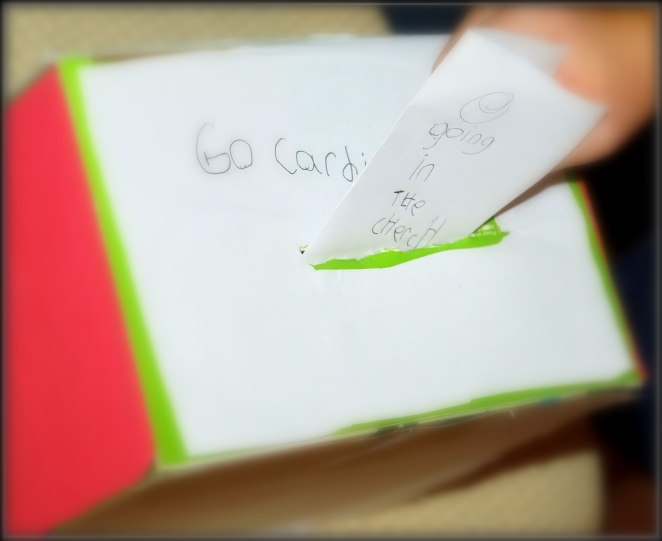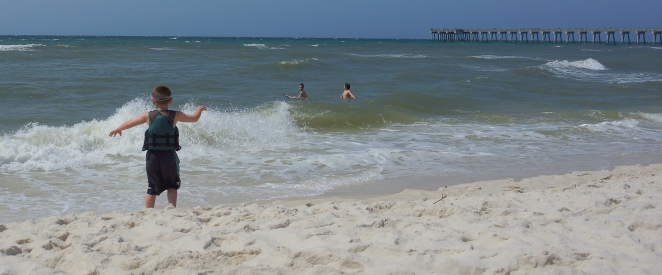
Our 10 year old son is homeschooled. The school district does not permit homeschooled students to join in school sports. However, little league baseball is ran by wonderful, dedicated, parents. Our son was able to try baseball! Yes, with a little coaxing, learning it’s history (favorite subject), watching movies & YouTube videos, and lots of preparing before his first big day of practice- he tried it! His OT (occupational therapist) even helped us to prepare him. A few sessions he had to concentrate / self control to catch a ball at a certain distance with loud noises (teammates / parents yelling) were in the background. It’s hard for sensory kiddos. Grandma and I took him to an 1800s baseball game hoping to pique his interest. I was so excited for him. Hoping and praying he would absolutely love it! But, was he excited? I wanted him so much to experience being part of a team. To win. To lose. To have fun with a team.
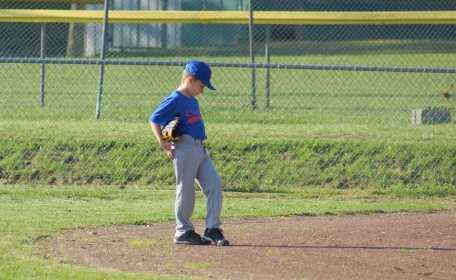
As you can see by his stance, he did’t fall in love with the game. He had no excitement for it. During one game a ball came flying at him in the outfield, I held my breath until the outcome. Sensory kiddos brains are wired differently. Too much input creates a ‘traffic jam’. A real challenge was before him and he had to take action. The ball, thankfully, grounded before it reached him -quickly rolling towards him it rolled up his body and up his face and tipped his hat. I’m still holding my breath- frozen. The crowd all in unison whoa-ed and the coaches went to check on him. I breathed out…he was perfectly fine. We can laugh about it now. He handled it well in the moment on the field. And while in the public’s eye he stood his ground and participated as soon as that car door shut it was over. The frustration in his voice and the displaced gestures and comments towards us quickly rolled out of his mouth. I questioned myself by strongly encouraging him to continue to play. It was challenging for him and I was so proud he stepped up to the plate.
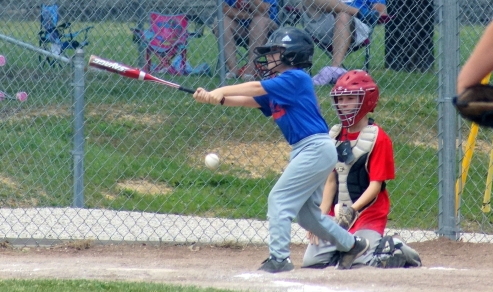
We made it to game 3 and I so know the imperative life lesson to NEVER quit…I just couldn’t force him to finish the season and he slowly worked up to a full blown meltdown lasting for nearly an hour. Yes, I was sad and somewhat disappointed because I feel like he’s missing out on so much not playing a sport and learning valuable lessons along the way…I even felt some guilt.
Yet, I also came to the realization that he truly didn’t enjoy the sport and that it is OKAY! He will gain valuable lessons in other ways – in other competitions. Not to beat myself up because I couldn’t pique his interest in playing baseball….this year, maybe next year. Also, not to make him feel as if he failed because he truly succeeded in trying and going in the outfield, and especially batting in front of everyone!!! He tried – we tried and that’s what matters most. So, for now, just take my star and I out to the ball game- we’ll watch.


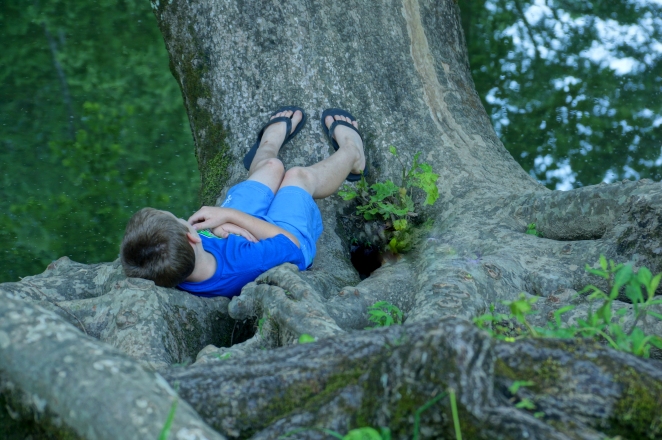 As school wound down and summer began…for other children it’s an exciting time…free time…fun time – woohoo NO HOMEWORK, no worries – be happy! However, for sensory kids it can be overwhelming – the changing of schedules and routines, more people and visits, vacation and/or staycations. Even the clothing…making that transition from warm clothes to shorts, ooooh my, and especially tennis shoes/boots to sandals. It’s always an adjustment period I know.
As school wound down and summer began…for other children it’s an exciting time…free time…fun time – woohoo NO HOMEWORK, no worries – be happy! However, for sensory kids it can be overwhelming – the changing of schedules and routines, more people and visits, vacation and/or staycations. Even the clothing…making that transition from warm clothes to shorts, ooooh my, and especially tennis shoes/boots to sandals. It’s always an adjustment period I know.